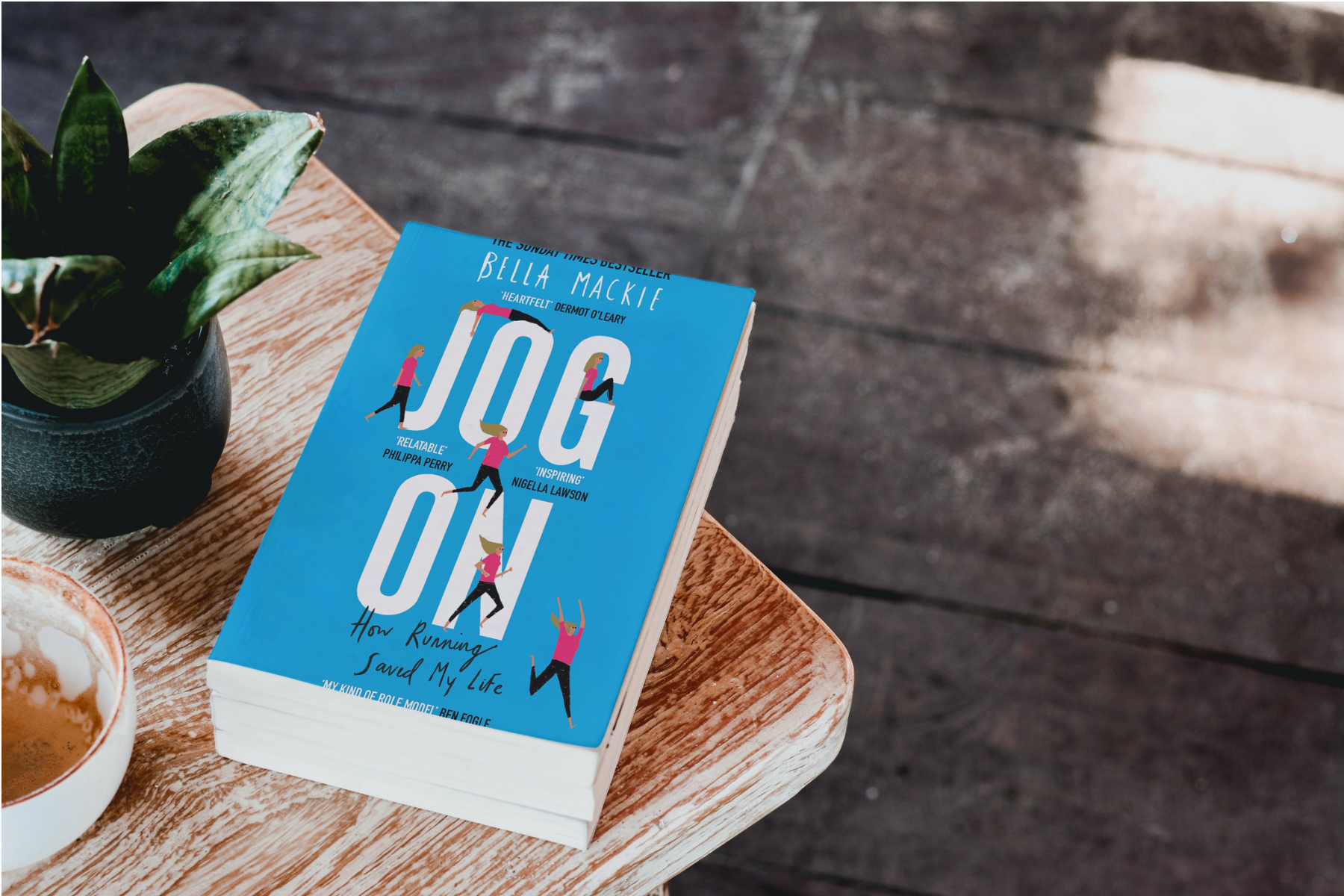Book Review: Jog On by Bella Mackie
This book has been on my reading list since Christmas, alongside Mackie’s other title How to Kill Your Family (which I just finished recently too – amazing btw). Mackie’s books were originally recommended by a friend, after I had mentioned visiting my GP about anxiety and depression. I had explained how I wasn’t sure of a way forward, of what to do next I suppose. Yes, I talk about self-care and support every day but I still felt a bit stuck in my own situation.
I didn’t buy the book straight away, I read the reviews and it felt a little hit and miss. Ridiculously, I was worried about buying a book that I would either leave unread or unfinished… I hate that. In fact, I don’t think I could do it. The pain of quitting a book, is pretty much the same feeling I get when I force myself to finish one – but at least if it’s finished, I have closure. Alas, I was given the book for Christmas so that was decision made. Fortunately, Jog On wasn’t too much trouble. In fact, I’d go as far as to say I really loved the book.
It wasn’t the book I thought it was, but nonetheless it really resonated with me. I have read quite a few personal accounts of mental health recently, trying to find something or someone who reflects what I’m feeling and so far, I think Mackie’s is the one that stands out. Whilst we are not the same, she is relatable.
Take her jogging journey for example…
We are told time and time again how much running can help with mental health, (I’m sure we have posted something similar on the First Steps ED feed before!) then we put on those running shoes and omg it hurts. Even if you last five minutes on that first run, does anyone get home and think ‘this is for me’. I don’t think so.
And Mackie is the same – she doesn’t tell us that running was a miracle from the off. Far from it. She talks about the metaphorical mountain she had to climb to get into running, and through the course of the book we go on that journey of understanding why it’s all worth it.
I see this the same with any self care journey. Journaling felt silly at first, but now I like it. I NEED it. So, whilst running is off the cards for me right now (thanks to a mishap with a bedsheet and a flight of stairs which means my ankle is out of action for a while) Mackie did help me adopt more patience on my own journey. It made me realise that these things take time, finding what works will take time. Change takes time.
Since reading the book (which was actually quite a while ago) I have just finished 12 weeks of CBT, seen my doctor a couple of times and tried lots of different self-care stuff… Journaling, yoga, strength training, more reading (obvs), new walks and adventures, a bit of meditation here and there, and that’s just to name a few. Not everything has worked so far, and some things have taken time to adjust to and understand. But hey, I tried them and I’m doing my best to be more active in managing my mental health (hooray for me!)
I love Mackie’s honesty throughout the book, and the humour that shines throughout many of the chapters. I felt privileged to be invited in to peek into the raw and unfiltered window of her life. It is further strengthened by the regular research and references she uses throughout, it’s clear that this lady knows what she’s talking about – validating her experience but also the readers.
It sounds strange to say how flat words on a page can make you feel more heard than a conversation with a friend, or even therapist, but hey! Here I am saying it. For both sufferers and supporters alike, I feel as though this book provides a real insight into mental health.
If you’re supporting a love one through dark times, this book can offer you more than just an easy read. It is a book of hope, and insight into whatever mental health journey you’re embarking on with your loved on. If my boyfriend was a reader this would be on the top of a recommended reads list (if only Mackie had a Netflix series for the anti-book crowd.)
So, what about running?
What still sticks with me is Bella’s persuasive voice which even now is persuading me to pull on my old trainers in a bid to look after my head and escape the grind for short while.
I’m in a bit of a period of change now, craving a routine that works for me, my work and my head – which is what brought me back to this book. I haven’t re-read it, but I have just ordered the Jog On Journal, the practical guide and companion to its predecessor. And in a couple of weeks (or at some point), I think I’m going to give it a go…
I have tried running before, but it’s not a routine that ever sticks. Thinking back, I was possibly always doing it for the wrong reasons… and maybe I never recognised the other benefits of running and exercise. Mackie has offered me a new perspective.
This activity isn’t to drop a few pounds or to hit a new fitness goal, it’s for my brain. It’s for all those times I get so anxious I don’t know what to do with myself. The times when my thoughts are running around in circles but I’m paralysed in my desk chair. It’s for the moments when I start to feel buried by the world and I need to burst out of the metaphorical mole-hill and scream out.
I’m sure like many people, I have a slight fear of running. I have insecurities around my body and fitness. I feel unworthy when I flop past the professionals who jog past me with ease, and the speedsters who wink at you as they lap you for the fourteenth time in the park… Oh, and certainly not forgetting the groups of teenagers that snigger as you shuffle past them with the ‘faster-than-a-walk-but-slower-than-a-jog’ jog. But i’m trying to change my mindset (my CBT therapist would be proud..) and this book has already helped with that. I’ll be running for me. Instead of focusing on the external, I’ll be busy recognising everything that i’m feeling, relieving the stress and the frustrations from my day, stamping them out as my heavy feet hit the floor.
If, like me, you are afraid of even try to run, but low-key wish you could… read this book.
In short…
It is nice to understand someone else’s swirling world of worry, it certainly makes you feel less alone with your own. I love the chapters and how they work as the running markers (1K, 2K etc.) as well as the anecdotal narrative which blends perfectly with expert research.
Mackie’s writing is relatable, enough to realise how different yet similar our experiences can be. And the best bit is that the book doesn’t leave you wanting… Not only are you encouraged to pursue your own self-care journey, she ends with so many other resources and references to sink your teeth into – both in terms of running and our mental health.
If you’ve taken the time to read this blog, I encourage you to give Jog On a go (and let us know what you think!)



